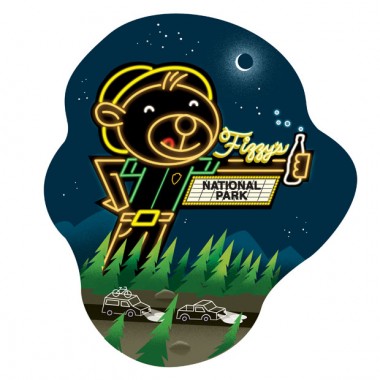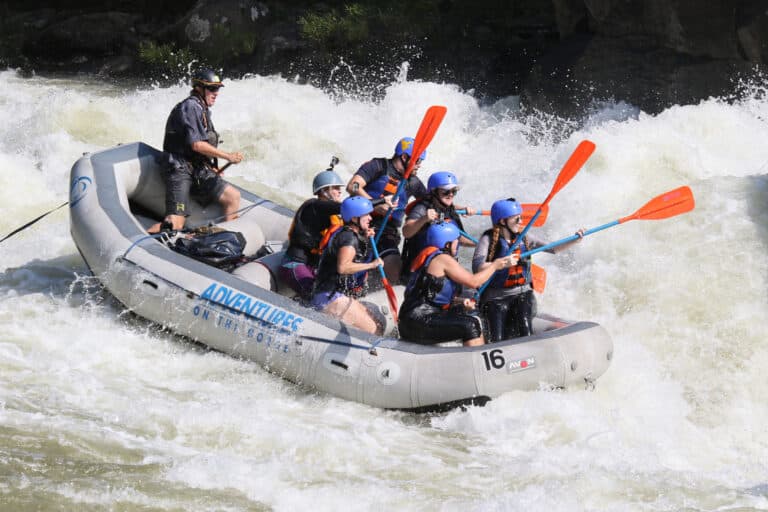YES
No one wants a McDonald’s in front of Old Faithful, a fear I hear time and again when privatization is mentioned. However, once the government determines how to manage a particular park, should its operation be privatized? Sure. The National Park Service faces hundreds of millions of dollars in capital needs and deferred maintenance. It is crazy to use that limited budget for federal employees to clean bathrooms and man the gatehouse, when private companies have proven they can do a quality job much less expensively. The U.S. Forest Service, for example, has had private operators in over a thousand of its largest parks for nearly thirty years, and unlike state parks agencies or even the Park Service, it is not considering park closures or accumulating deferred maintenance, despite having its recreation budget axed. Why? Because its partnership program with private operators is a fundamentally sounder, lower-cost approach to park operations.
In fact, such public-private partnerships are nothing new for the National Park Service. The Park Service was an early innovator in this field, and currently private companies operate many of the visitor services in parks, such as lodges and gift shops. The Forest Service innovation, which has been copied by many agencies including most recently California State Parks, has been to turn over operations of the whole park, not just the lodge, to a private company. These are highly structured contracts, wherein the private company cannot modify the facilities or change fees without agency approval, and must meet a range of detailed performance goals.
Most critiques of private park operations center around quality and fees. While there certainly have been some isolated failures, in general the results have been quite good. In Arizona, a recent poll by CampArizona.com ranked the top 10 public campgrounds in Arizona. Of these, three of the top five were US Forest Service campgrounds run by a private operator, as was the top Arizona campground in Sunset Magazine’s “Best of the West” (OK, I have to brag, these are all run by my company). As for fee concerns, state-run parks in California charge $30 for a no-hookup camp site. Privately operated public campgrounds in California forests seldom charge more than $18.
My company operates over 150 state, county, and federal parks. They are well-run, generally with more staff than a typical state park, and have no significant deferred maintenance backlog. Oh, and not a single one has a McDonald’s, a billboard, or a neon sign in front of a national monument.
Warren Meyer is the president of Recreation Resource Management.
NO
There are many things that business does or could do better than government. But twenty years of experience working on park issues convinces me that managing our national parks isn’t one of them.
Every American is a shareholder of the natural and cultural heritage protected and made available by the National Park Service. The “profit” we shareholders receive for our investment is the knowledge that America’s stories and most precious natural resources will be accessible to our grandchildren’s grandchildren. Given the tasks of protecting fragile habitat, scenic vistas, historic character, and life-changing human experiences, most members of a board room would be way out of their element.
The American public was recently asked this very question in a national poll conducted jointly by Republican and Democratic polling firms. While there is sometimes vehement disagreement about the proper functions of the federal government, 95 percent of those surveyed said that protecting national parks is an appropriate role for the federal government. Further, when told the amount we currently spend operating our parks, 92 percent said that federal funding for parks should be maintained or increased, including 88 percent of Republicans and 96 percent of Democrats. In our deeply divided electorate, Americans are nearly unanimous about our national parks—and the role of government in protecting them.
The argument that privatization is needed for the parks to succeed economically assumes there is a problem. Given that the “profit” we shareholders might expect also includes a healthy contribution to our overall economy, let’s examine how the parks are doing.
According to a recent study, visitors to the national parks supported more than $31 billion in spending to local economies–$10 for every $1 invested–and more than 258,000 jobs in 2010. All of these benefits come from an agency funded by 1/14th of 1 percent of the federal budget. If the National Park Service were a Fortune 500 company, it would rank right above McDonald’s and close behind American Express. Privatizing national parks would be trying to solve a problem that doesn’t exist.
It is the inability of Congress to work together for the public good that threatens our national parks as economic generators. Allowing sequestration or other funding cuts to diminish the parks would mindlessly impede America’s economic recovery. National parks aren’t part of the problem; they’re part of the solution, and cutting or privatizing their budgets would be about as penny-wise and pound-foolish as it gets.
Don Barger is the senior regional director for the National Park Conservation Association.








